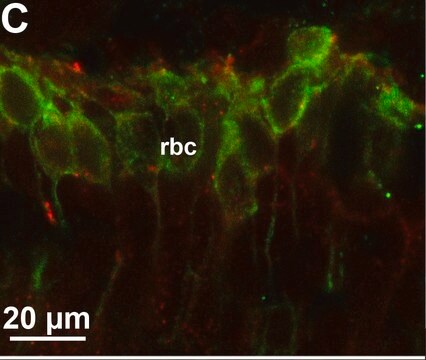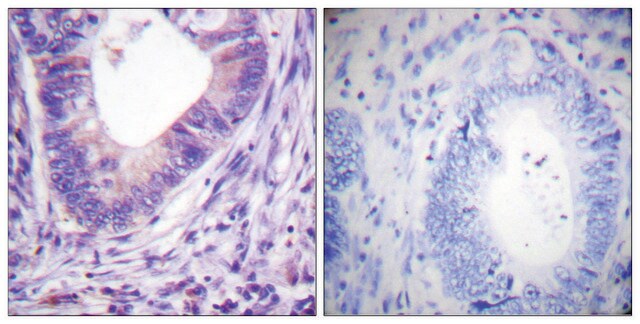P5704
Monoclonal Anti-Protein Kinase C (PKC) antibody produced in mouse
clone MC5, ascites fluid
Synonyma:
Monoclonal Anti-Protein Kinase C, Anti-PKC
About This Item
Doporučené produkty
biological source
mouse
Quality Level
conjugate
unconjugated
antibody form
ascites fluid
antibody product type
primary antibodies
clone
MC5, monoclonal
mol wt
antigen 80 kDa
contains
15 mM sodium azide
species reactivity
rat, bovine, mouse, human
technique(s)
immunohistochemistry (frozen sections): suitable
immunoprecipitation (IP): suitable
microarray: suitable
western blot: 1:500 using rat brain cytosol preparation
isotype
IgG2a
UniProt accession no.
shipped in
dry ice
storage temp.
−20°C
target post-translational modification
unmodified
Gene Information
human ... PRKCB(5579) , PRKCZ(5590)
mouse ... Prkcb(18751) , Prkcc(18752)
rat ... Prkcb(25023) , Prkcg(24681)
Hledáte podobné produkty? Navštivte Průvodce porovnáváním produktů
General description
Specificity
Immunogen
Application
Disclaimer
Ještě jste nenalezli správný produkt?
Vyzkoušejte náš produkt Nástroj pro výběr produktů.
Storage Class
10 - Combustible liquids
wgk_germany
WGK 3
flash_point_f
Not applicable
flash_point_c
Not applicable
Osvědčení o analýze (COA)
Vyhledejte osvědčení Osvědčení o analýze (COA) zadáním čísla šarže/dávky těchto produktů. Čísla šarže a dávky lze nalézt na štítku produktu za slovy „Lot“ nebo „Batch“.
Již tento produkt vlastníte?
Dokumenty související s produkty, které jste v minulosti zakoupili, byly za účelem usnadnění shromážděny ve vaší Knihovně dokumentů.
Zákazníci si také prohlíželi
behavioral ability and analgesic effects on rats with neuropathic
pain and expression of protein kinase C in the spinal dorsal horn
Náš tým vědeckých pracovníků má zkušenosti ve všech oblastech výzkumu, včetně přírodních věd, materiálových věd, chemické syntézy, chromatografie, analytiky a mnoha dalších..
Obraťte se na technický servis.

















